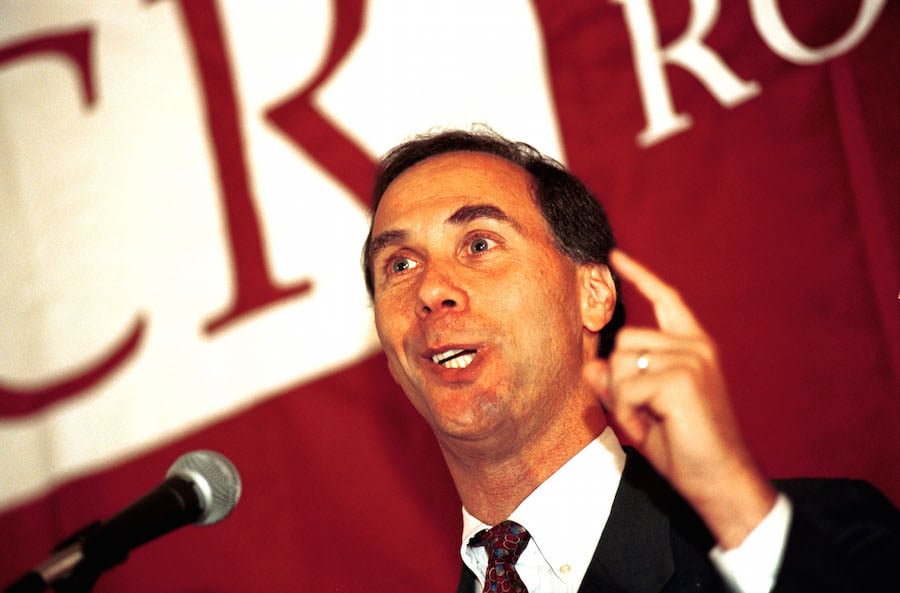The junk-bond market is indicating a 44% chance of a recession in the U.S. within one year, according to Martin Fridson, a money manager at Lehmann, Livian, Fridson Advisors LLC.
The junk-bond market is indicating a 44% chance of a recession in the U.S. within one year, according to Martin Fridson, a money manager at Lehmann, Livian, Fridson Advisors LLC.
“I am not an economic forecaster — this is what the market is saying," said Fridson, who started his career as a corporate-debt trader in 1976. "There are lots and lots of caveats, but if you accept all of the assumptions, it's a pretty startling comment."
http://www.investmentnews.com/wp-content/uploads/assets/graphics src="/wp-content/uploads2016/01/CI103333112.PNG"
DOUBLELINE CALL
Jeffrey Gundlach, the co-founder of Doubleline Capital, sees a one-third chance of recession this year. Standard & Poor's said in a report Monday that the outlook for corporate borrowers worldwide is the worst since the global financial crisis. Their views counter statements from Federal Reserve officials that point to more interest rate hikes this year amid falling unemployment.
Fridson's analysis looks at monthly junk-bond spreads since 1986, using Bank of America Merrill Lynch index data. The extra 7.39 percentage points investors demanded to hold high-yield debt over Treasuries on Jan. 8 was somewhat less than midway between the 5.2 percentage point-average for expansionary months and 10.19 percentage point-average for recessionary months. That signals the probability of a recession at 43.9%, according to the Tuesday report from Standard & Poor's Capital IQ Leveraged Commentary & Data.
DEFAULTS
Citigroup analysts have pointed out that spread levels on the Markit CDX North America High Yield Index, a credit-default swaps benchmark tied to the debt of 100 speculative-grade companies, are pricing in an expected loss of 21.2% over a five-year period. That translates into approximately 22 defaults in the next five years, assuming zero recovery for investors.
Although the high-yield market has often been ahead of experts and official arbiters in predicting a slowdown, it isn't an infallible economic forecaster, Fridson said. The market may be overstating the near-term risk of recession, according to Fridson, which would mean high-yield bonds "offer good value currently."
The distressed state of the energy sector adds another caveat to the calculation. Oil traded near the lowest close in more than 12 years Tuesday, having slid more than 15% in the previous six sessions — the biggest drop in over four years. Excluding the commodities portion of the high-yield market from the calculation brings the probability of a recession down to around 20%, which is “less than Gundlach's estimate but still above that of many if not most pundits,” Fridson said.
MORE OPTIMISM
"I am inclined to be a little bit more optimistic than the calculation taken at face value, in particular because the spread is inflated by the very distressed state of the energy and metals and mining sectors," Fridson said. "You could say that if you take out energy, the rest of the market is not indicating a particularly high recession risk, and that's also a valid comment."
Still, the report notes that probability of recession as calculated by this methodology tends to be close to some forecasters.
"At the very least, the market's opinion is worth considering," according to the report.







